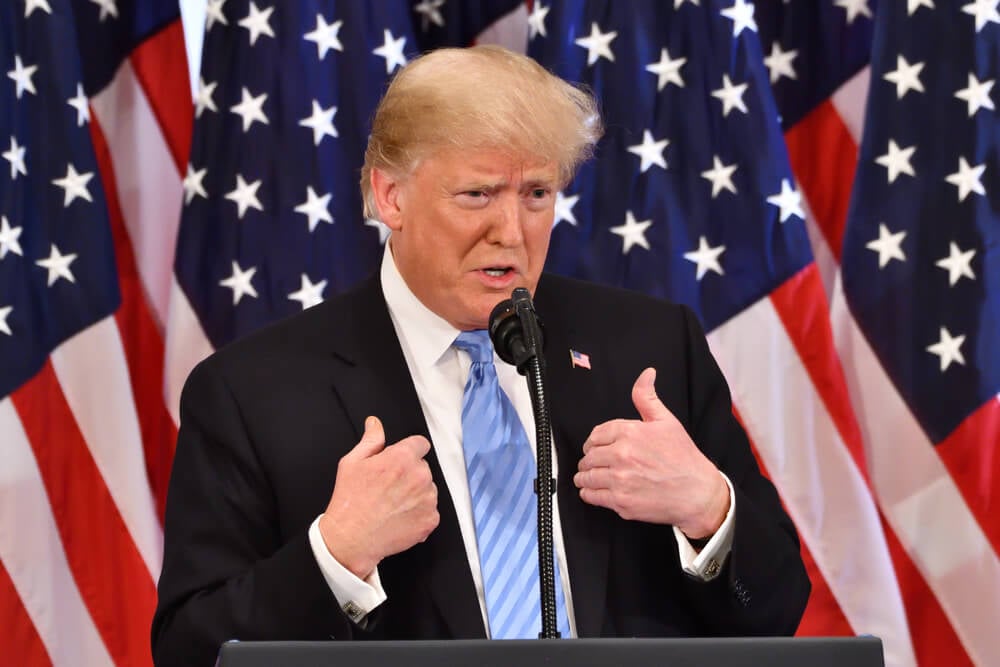Vladimir Putin found President Trump's imperialist rhetoric aimed at invading and/or bullying democratic countries like Canada and Denmark extremely gratifying.
Moscow has concluded that these statements either reflect the president's sincere intention to bully other democratic countries despite their historical allegiance to the United States or serve to distract his voters from Ukraine.
Donald Trump's latest proposals to seize control of Canada and Greenland seem to have taken Vladimir Putin and his entire propaganda apparatus by surprise.
The Kremlin obviously saw an opportunity in Trump's shocking statements, without getting into their motives and true intentions.
Firstly, this enables Vladimir Putin to employ the same security concern logic in potential future negotiations with President Trump regarding Ukraine.
Secondly, he has recognised his own logic in Trump’s ideas about annexing Canada and Greenland, given that the future president has been pointing out that the citizens of these countries would be happy to join the US. Vladimir Putin has expressed similar sentiments regarding Ukraine and its people.
Vladimir Putin was pleased with these remarks about Canada and Greenland, as they implied that President Trump would soon abandon Ukraine, while his supporters would continue to focus on his tough stance towards Canada and Greenland.
The new dance between Trump and Putin
Basically, Putin would not be bothered if the next US president decided to implement his aggressive imperial ideas. Additionally, it suits him well that Trump's aggressive rhetoric with territorial claims successfully diverts Americans' attention away from Ukraine.
The new "dance" between Trump and Putin, prepared for after 20 January, will, regardless of all the fresh memories of the previous one, be different than it was between 2016 and 2020.
Before the 2016 election, the Kremlin was trying to conceal its imperial and aggressive nature
In 2016 and the following years, there were endless accusations of collusion between the Trump team and Russia. As far as we know, no official confirmation exists for any of those accusations.
The Kremlin denied those accusations officially but allowed and even secretly encouraged such sentiments of collusion in various Russian propaganda outlets because it provided a sense of superiority over America to the Russian patriotic majority.
However, significant changes have occurred since 2016, particularly in Russia. Before the 2016 election, the Kremlin was trying to conceal its imperial and aggressive nature.
“Yes, we are aggressive and imperial”
Since 24 February 2022, when Vladimir Putin initiated a full-scale war against Ukraine, the Kremlin has concluded that it was time for a change.
Its primary message to the West has shifted from fake pacifism to one that boldly declares the deviant and aggressive nature of Putin's Russia.
"Yes, we are aggressive and imperial, but there is nothing you can do about it"
That new message can now be summarised as follows: "Yes, we are aggressive and imperial, but there is nothing you can do about it, and, moreover, many Western stakeholders are willing to accept who we are."
The Kremlin was originally surprised that, despite all the documented facts about Russia's wrongdoings and atrocities in Ukraine, there were still prominent supporters of Russia's version of reality in America.
Moreover, Trump's recent statements about Ukraine's NATO membership, along with his numerous offensive posts about both Ukraine and Volodymyr Zelensky, align with Russia's current strong belief that the Western public is prepared for Vladimir Putin's despotic, authoritarian, and aggressive Russia.
It is not the motives that matter, but the effects
The Kremlin does not understand exactly why anti-Ukrainian narratives are so attractive to so many influential people in America, including some of those among the incoming Trump administration.
 It is confusing why Donald Trump prefers to direct the attention of his supporters against peaceful countries such as Canada and Denmark instead of Russia, the historical rival of America
It is confusing why Donald Trump prefers to direct the attention of his supporters against peaceful countries such as Canada and Denmark instead of Russia, the historical rival of America
It is also confusing why Donald Trump prefers to direct the attention of his supporters against peaceful countries such as Canada and Denmark instead of Russia, the historical rival of America and the country that does not conceal, at least domestically, that it wants to see the collapse of America.
But for the Kremlin, in the end, the reasons do not matter. What matters to the Kremlin are the effects that such aggressive narratives have on the American public and the establishment. And that effect is more than desirable for Putin's Russia.
This makes Russia optimistic about the upcoming negotiations on Ukraine with President Trump, who either shares Vladimir Putin's imperial nature or is already trying to abandon Ukraine by causing destruction to traditional American allies Canada and Greenland.